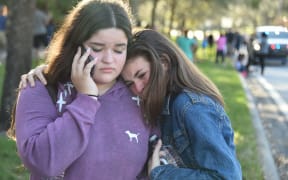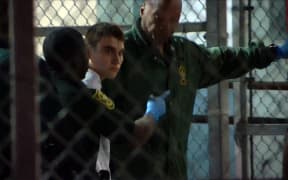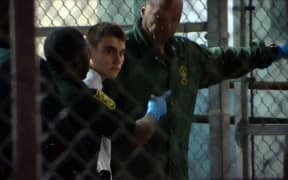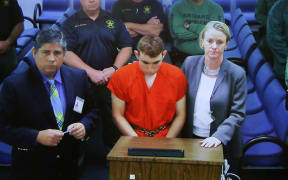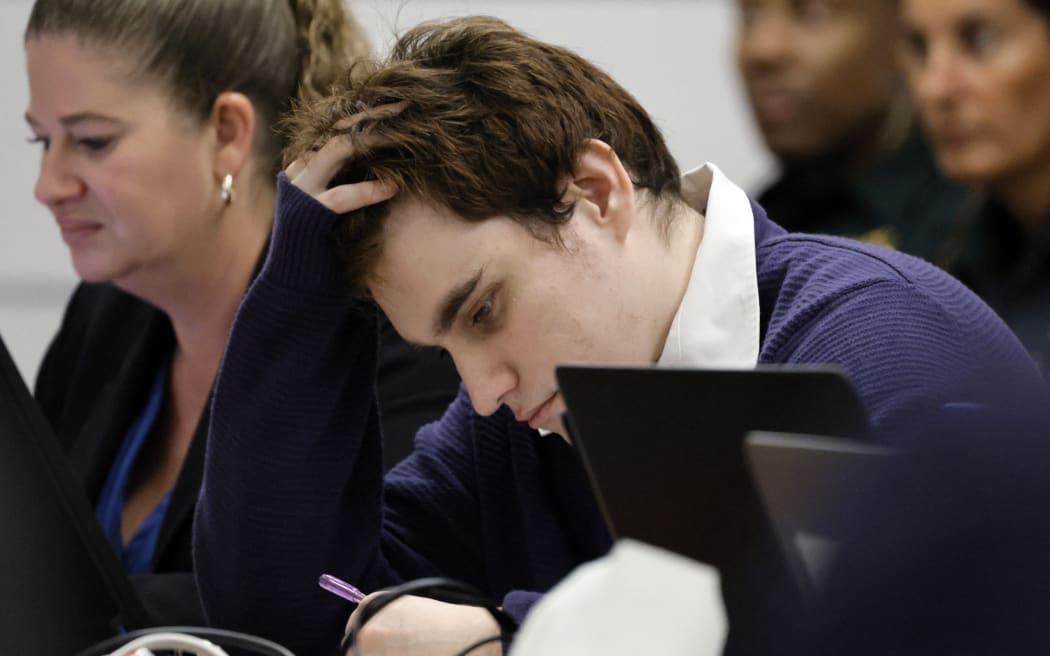
Marjory Stoneman Douglas High School shooter Nikolas Cruz has likely escaped the death penalty in his trial at the Broward County Courthouse in Fort Lauderdale. Photo: AFP
A Florida jury has decided to spare Nikolas Cruz, the gunman who killed 17 people in 2018 at a high school in the city of Parkland, from the death penalty, instead calling for life in prison.
Some family members of victims shook their heads in the Fort Lauderdale courtroom as the jury rejected the prosecution's request for the death penalty for Cruz in one of the deadliest school shootings in US history, determining that aggravating factors were outweighed by mitigating circumstances.
Cruz, 24, pleaded guilty last year to premeditated murder at Marjory Stoneman Douglas High School in Parkland, about 30 miles (50 km) north of Fort Lauderdale. Cruz used a semi-automatic rifle to kill 14 students and three staff members.
The sentencing trial, held after Cruz's guilty plea, lasted three months. Jurors began their deliberations on Wednesday. Under Florida law, a jury must be unanimous in its decision to recommend that a judge sentence Cruz to be executed. The only other option in the case was life in prison.
The defence, seeking to avert the death penalty, called witnesses who testified about Cruz's mental health disorders resulting from his biological mother's substance abuse during pregnancy. Cruz's half-sister testified that their mother drank heavily and used drugs including cocaine while she was pregnant with Cruz.
Broward County Circuit Judge Elizabeth Scherer set the formal sentencing for 1 November. Survivors should have another chance to testify about the impact of the shooting during the sentencing hearing, prosecutors told Scherer on Thursday.
The prosecution argued that Cruz's crime was premeditated as well as heinous and cruel, which are among criteria that Florida law establishes for deciding on whether a death sentence should be imposed. The sentencing proceedings included testimony from survivors of the shooting as well as cellphone videos in which students cried for help or spoke in hushed whispers as they hid.
Cruz, who at the time of the shooting was 19 and had been expelled from the high school, apologized for his crimes and asked to be given a life sentence without the possibility of parole in order to dedicate his life to helping others.
The United States has experienced numerous school shootings in recent decades including one in May in Uvalde, Texas, that left 19 children and two teachers dead.
Some of the teenagers who survived the Parkland rampage formed "March for Our Lives," an organization that called for gun control legislation such as a ban on assault-style rifles. President Joe Biden in June signed the first major federal gun reform legislation in three decades, which he called a rare bipartisan achievement, though it did not include an assault weapons ban.
- Reuters
